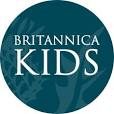
“Fever!” by Scottish Opera
Music Alan Penman Words Allan Dunn Illustrations Iain Piercy
Every Monday from 11 May to 15 June, Scottish Opera will be posting exciting activities aimed at Primary 5-7 pupils, including:
• Short videos that tell the story of Fever!
• Lyrics
• Videos to teach the dances
• Creative writing and science activities
• Tips to make simple props and costumes
All this preparation will culminate in a nationwide virtual performance at the end of June – look out for more details coming soon!
Fever! – A synopsis by Scottish Opera
Who says opera isn’t relevant to modern day life? Well, this opera is all about a young boy who is struck down by a mystery illness and rushed to hospital. Sound familiar? Outside, the paparazzi demand answers. What is this disease? How is it transmitted and how can it be cured? But the busy medics have no time to talk; they need to get on with finding a vaccine.
Meanwhile, an epic battle is taking place inside the boy’s body as the opposing forces of Good and Bad Bacteria fight to gain control of his immune system… Will he find the strength to overcome his internal enemy? Will the medics find a cure? And will the media folks make it all up anyway, just to get a good headline?
You can join Scottish Opera in making this funny and fast moving story come to life. Pupils will find out all about infections and viruses and how their body fights them. They will also find out about about Fake News and why it’s so important to understand that not everything you read on the internet is true…
To get stuck in, go to www.scottishopera.org.uk/fever from Monday 11 May to find all you need to get started. Further resources for Song 1 will be posted on Monday 18 May.





















